New sleep gadgets can track snoring and detect sleep disorders, but doctors prescribe caution
A new wave of gadgets promise to record your snoring, get you to sleep fast, and detect disorders but sleep scientists are urging users to relax.
From gadgets that record secret snoring behaviour to tech that detects sleep disorders, Australians are getting access to a lot more bed-based technology this year.
Some make assessments from your wrist, others sit on the nightstand, one hides under the mattress, and all these sleep-tracking gadgets promise new insights into what you do when you’re at your most relaxed.
But while sleep scientists generally welcome the new technology and growing awareness of sleep issues, they warn none can replace medical testing or poor sleep habits, and users should take care not to become fixated on the findings.
Fitbit was one of the first companies to introduce sleep-tracking in 2012 but the trend can now be seen across the industry and in more than just fitness trackers and smartwatches.
Audio firm Bose recently launched a new version of its Sleepbuds in Australia, for example; tiny earbuds designed be worn through the night while they play soothing soundtracks, from forest to beach scenes and white noise, to lull users off to sleep.
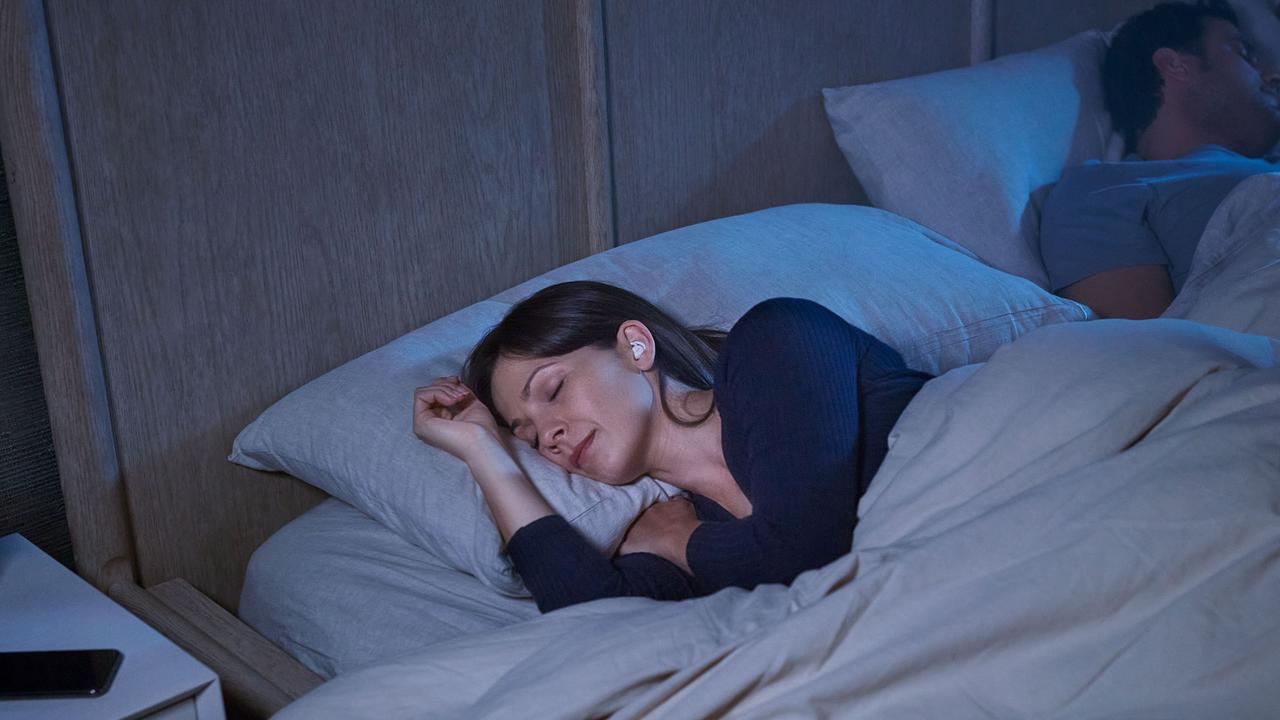
The second model features better noise-masking, longer-lasting batteries and was launched with a study of 55 users from the University of Colorado that showed most fell asleep faster when wearing the earbuds.
French firm Withings has also taken its sleep technology further by winning approval from Australia’s Therapeutic Goods Administration for the use of its Sleep Analyser — a sensor-packed mat that fits beneath the user’s mattress.
The approval means it can be used as a “diagnostic test for the risk of sleep apnoea” as well as tracking the sleep and the snoring noises of anyone who naps on top of it.
Withings global content director Susie Felber said the company sought medical approval to help tackle the growing medical problem.
“If it’s detected that you have sleep apnoea, (the Sleep Analyser) is going to rank its severity from low to mild, moderate or severe, and it follows the certification used by the American Academy of Sleep Medicine,” she said.
“We have actionable medical data here. And, as with all of our products, you can send a healthcare report in a few taps from the app to your doctor.”
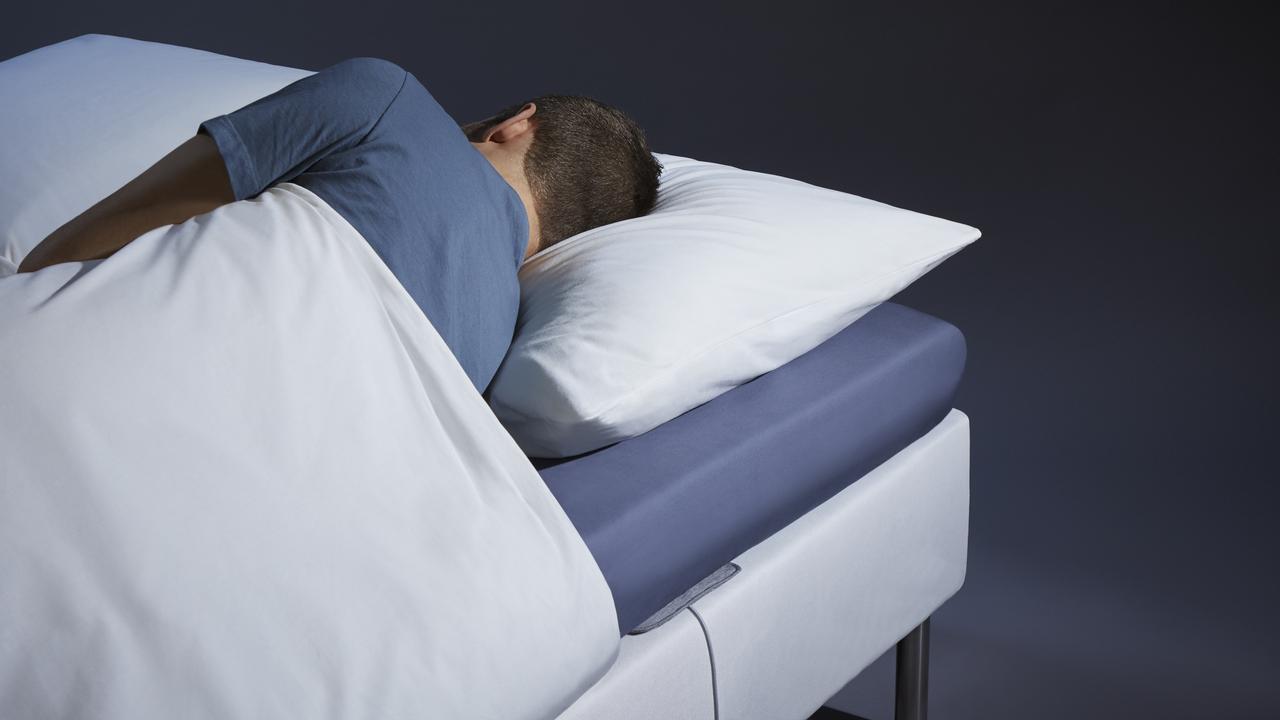
Apple also added sleep-tracking to its Watch this year, while Fitbit new Sense now measures users’ blood oxygen levels in bed.
Sleep scientist Dr Carmel Harrington said the gold standard for measuring sleep still involved “going into the hospital and getting wired up” to monitor for everything from brainwaves to muscle tone”.
But she said these devices could be identify users’ sleep stages, track their sleeping patterns, make them more aware of how long they spend in bed, and help them discover what effect their daytime behaviour has on their night-time rest.
“They can help people make associations, like ‘I had alcohol that night and I didn’t sleep very well’,” she said. “Those sorts of things are really important.”
Melbourne Sleep Disorders Clinic director Dr David Cunnington said the biggest difference between sleep-tracking gadgets and technology used in labs was their degree of accuracy, but the information they collected was still useful, particularly as it was often collected over long periods.
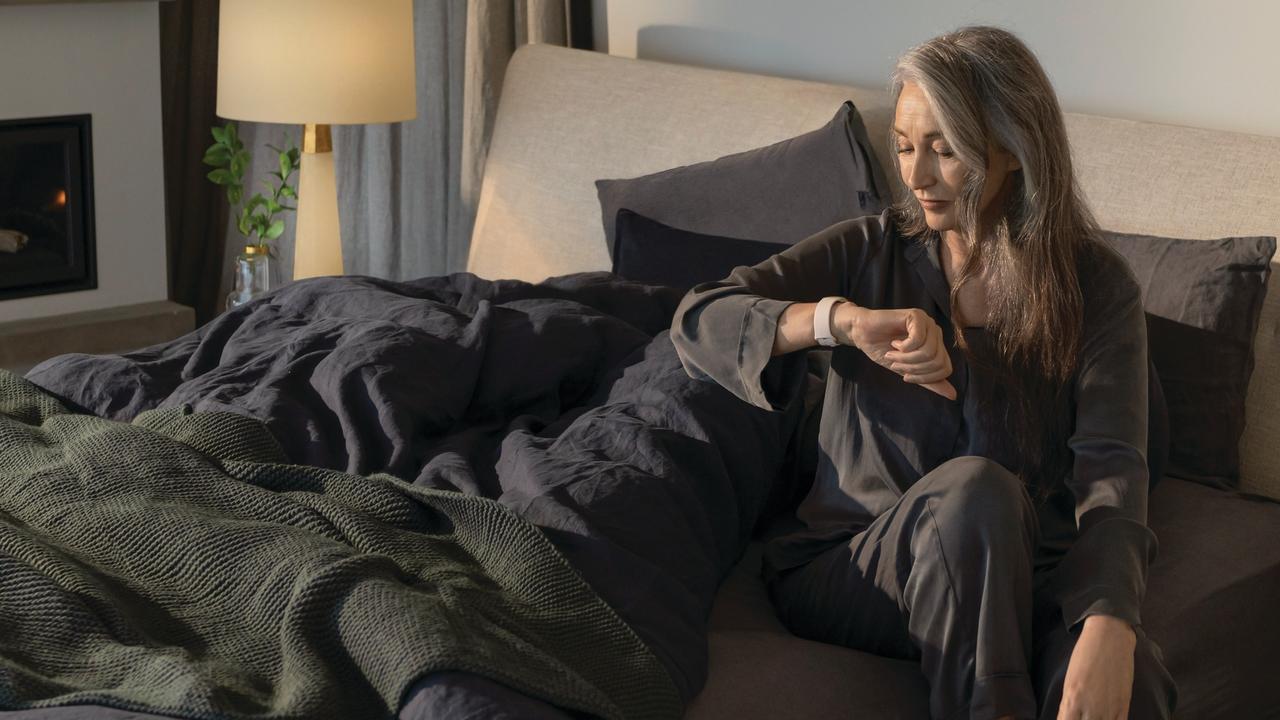
“If someone is coming to see me, yes, bring your data. I love it. The more data the better,” he said.
“What the consumer brings to the table is longitudinal data; low fidelity but long term. It can show trends. Their data will be complementary to the tests we do — they’ll each give me information.”
Behavioural sleep psychologist Dan Ford, from the Better Sleep Clinic, is more critical of the technology, however, saying there was still no definitive research indicating white noise helped insomniacs, and the devices could encourage people to spend too long stressing over statistics rather than just going to bed when they felt sleepy.
“Sleep is something we don’t need to control,” he said. “There’s a tendency for people to qualify everything they do and that can be really unhealthy. These devices are potentially helpful but, for some users, they can have the opposite effect.”
Dr Ford people should “listen to their body” more, and consider seeking medical assistance if it takes longer than 30 minutes to fall asleep more than three times a week for a month.
SLEEP TECHNOLOGY YOU CAN USE AT HOME
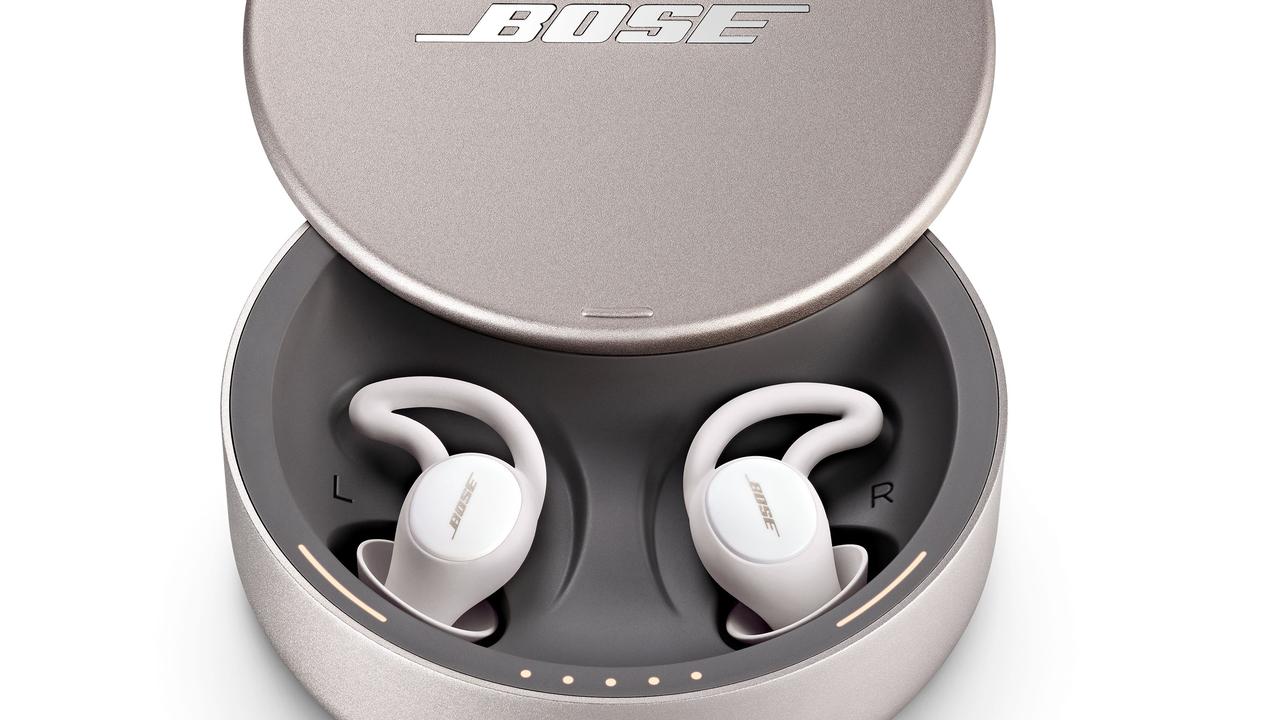
Bose Sleepbuds II ($380): The second Bose Sleepbuds are designed to do what their name suggests: lull you to sleep and keep you there. These tiny earbuds are smaller and more comfortable this year, with materials that won’t squeak against the pillow and a design that promises to be unobtrusive even for side-sleepers. The new model also has a battery able to play sound all through the night, new soundscapes to soothe users, and better “sound-masking” that doesn’t block all noise but distracts from it.
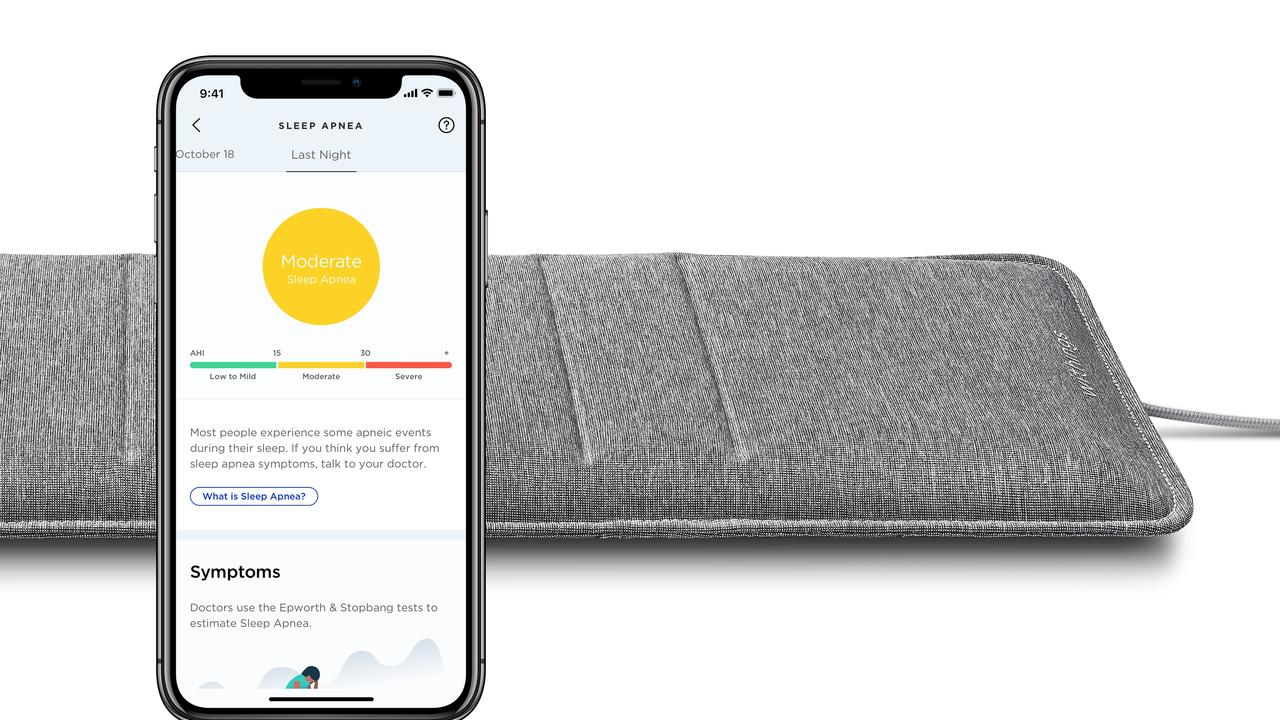
Withings Sleep Analyser ($199): Approved by the Therapeutics Goods Administration as a device that can detect sleep apnoea, this mat does much more than you’d expect. It’s designed to sit beneath your mattress, so you need not wear any gadget to bed, and it uses hydraulic sensors to monitor your heart rate and movements and assess how long you spend in each stage of sleep. A microphone records any snoring noises so you can work out if your slumber was disturbed or disturbing for others.
Apple Watch Series 3 and up (from $299): Responding to years of requests, Apple added sleep-tracking to its Apple Watch software this year, and it’s available on older and new Watches. The WatchOS 7 software feature records the user’s average time in bed, how much time they spent asleep, and lets them compare trends. The software will also send sleep reminders, and will let users see the times during the night that they woke.
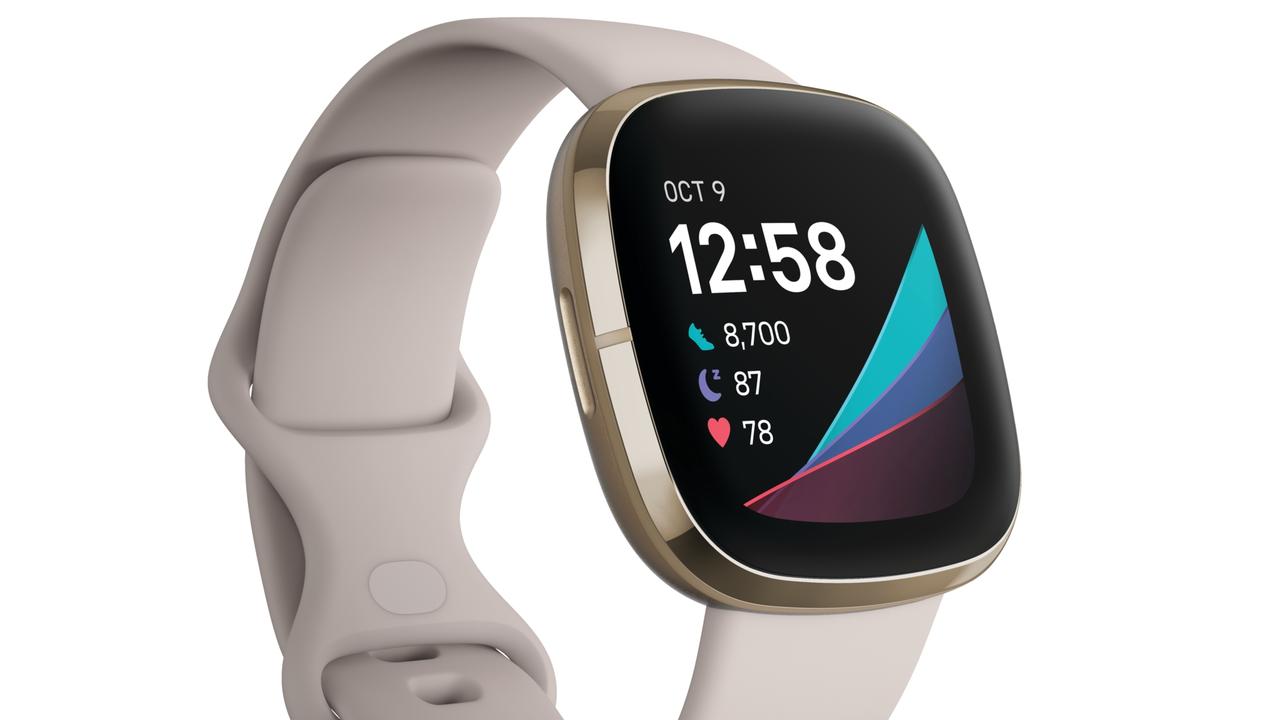
Fitbit Sense ($500): The latest Fitbit smartwatch uses extra sensors to track more about your sleep. Its pulse and accelerometer sensors combine to work out how long you spend in each sleep stage, as usual, but its new Sp02 sensor also rates your blood oxygen saturation while in bed and measures your skin temperature to see how close you are to your normal level. Any rise could indicate an oncoming infection.
Sleep As Android ($10): This app for Google-based gadgets can track users’ slumber from a smartphone or a smartwatch, and will record their movements, time in a deep sleep, the regularity of their sleep, and any sleep deficit they accumulate. It can also record any snoring for playback later and wake you at the best moment within a 30-minute window.
Sleep Cycle Premium ($40/yr): This app for Apple and Google devices will give your sleep a percentage, record your snoring for the night, and plot out your sleep movements on a graph. Plus, it gathers data from your phone on a bedside table. The premium version of the app also includes as mart alarm.
More Coverage
Originally published as New sleep gadgets can track snoring and detect sleep disorders, but doctors prescribe caution




